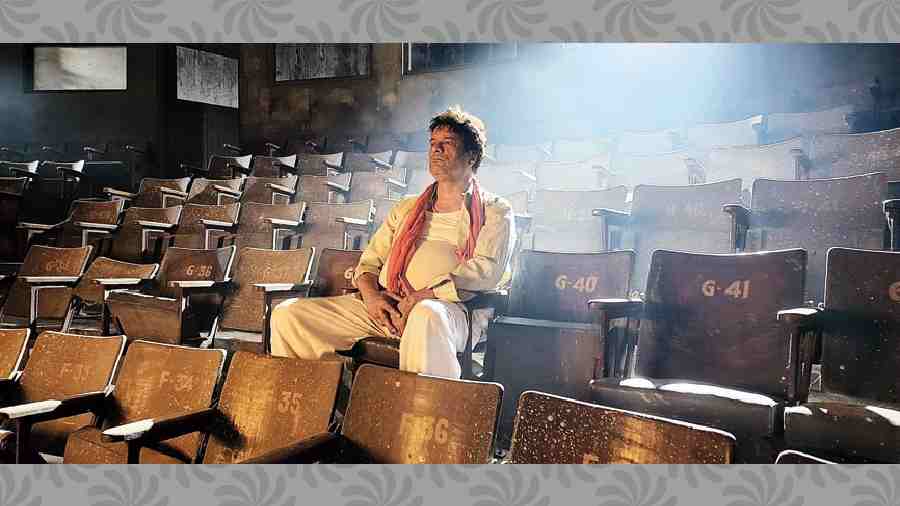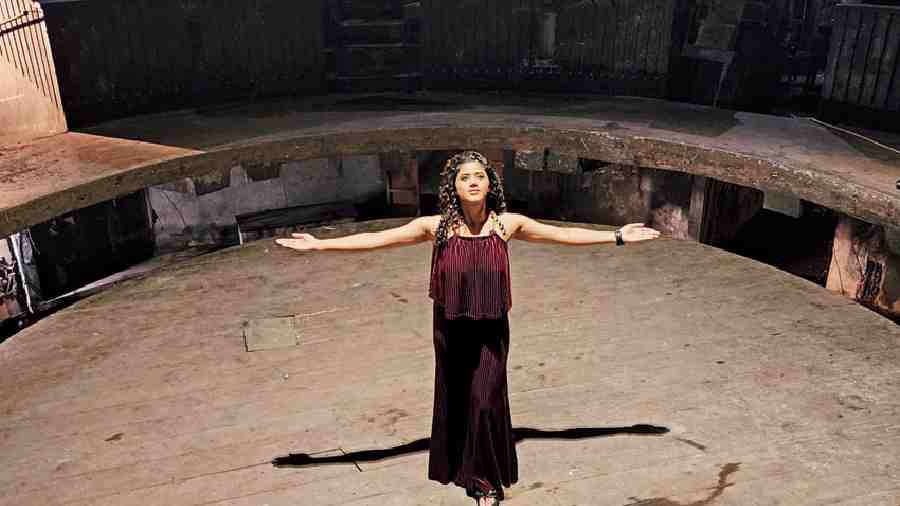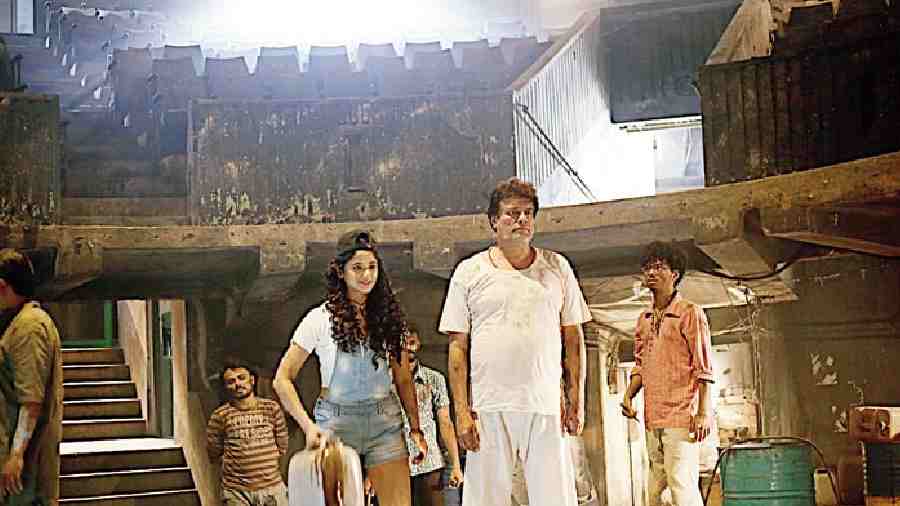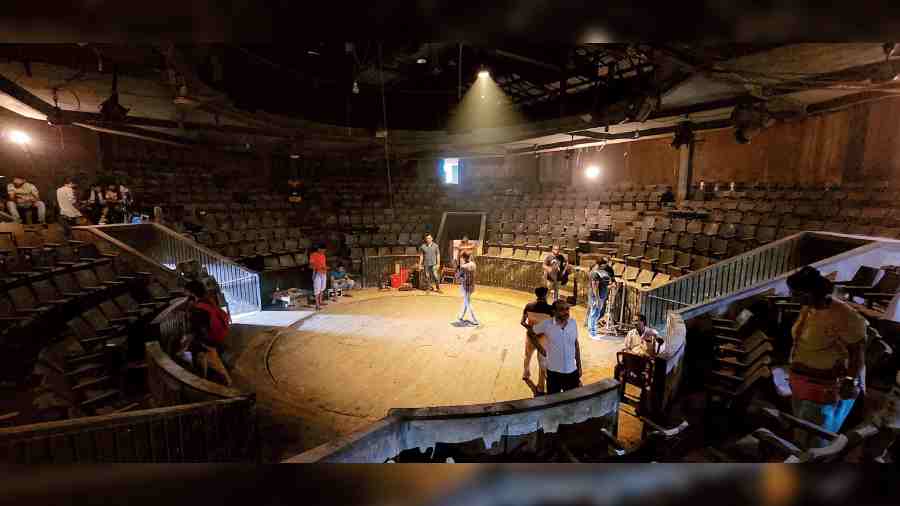A group of theatre lovers, led by Burtolla police station officer-in-charge Debasis Datta, are making a film that pays tribute to the glorious tradition of commercial theatre in erstwhile Calcutta. The second story of an anthology of four films called Kolkata 4, that celebrates old Calcutta and its inimitable culture, Dilruba is about the Circarena theatre hall in central Calcutta, which used to be the hub of the theatre culture in the city since it was built in 1976.
Constructed in the style of a colosseum, Circarena is circular in design and is the only revolving arena theatre in Asia with a performance platform that could be lifted up and down mechanically from a pit. Stalwarts like Rabi Ghosh, Utpal Dutt, Sumitra Mukherjee, Haradhan Banerjee, Sabitri Chatterjee and ‘cabaret queen’ Miss Shefali were regulars on the Circarena stage in its heydays. Unfortunately, with the ravages of time and a steadily declining theatre practice, the privately owned theatre hall gradually lost its appeal and began to fall into ruin and decay. Its last performance was staged in 2008.
Driven by his love for theatre and nostalgia about a precious childhood memory associated with the Circarena, Debasis Datta, with the help of deputy mayor of the city, Atin Ghosh, decided to revive and restore this heritage structure before it fell prey to land sharks. As they started work on its restoration with help from sponsors a few months ago, Datta also decided to write a story about the decadence of this place of former glory.
In his story a theatre house called Binodini Theatre Hall is the main protagonist. It is told from the perspective of Birju, a poor man from Bihar, whose father was the caretaker of the property. Having grown up there and witnessed its grandeur when it was a centre of popular entertainment, he stays back long after it has been abandoned and does odd jobs to make ends meet. His emotions are tied so deeply with the hall that it becomes his ‘Dilruba’ (lover) and he refuses to leave it and go away. He sees a group of college students and their mentor, who are theatre enthusiasts, but have no place to perform their plays. Soon, he is shocked to learn from the owner of the theatre hall that he needs to leave the place, as the owner has fallen into deep debt and would soon be selling it to a property developer.

Rajesh Sharma portrays Birju, the male protagonist in Dilruba, which was mainly shot in the newly restored and reconstructed Circarena theatre. “This was one of the most significant roles ever played by me and while I performed, I forgot my own self and turned into the character. The makers created true magic (in this film),” said the actor.

Amrita Halder, who plays the female lead, Disha, a character who inspires Birju (Rajesh Sharma) to transform his dream into reality
Birju pleads with the owner that before he leaves, he is allowed to lift up and revolve the broken-down stage for one last time. He is granted time and with the help of some kind-hearted locals who pitch in with money and technical assistance, he is finally able to achieve it. He gets the college students to perform on the stage on its last evening before being demolished. The ending marks a moment of both victory and defeat for Birju and perhaps the entire community of theatre-loving people.
Datta says, “I decided to make the film Dilruba, based on this story, to help arouse people’s interest in the dying tradition of theatre again, which used to be an intrinsic part of the Bengali way of life not too long ago. The symbolism of the stage being restored for a final performance is fascinating to me because it contains within itself the optimism that we can recover and regain our lost heritage if we really want to, in spite of all odds.”

A behind-the-scenes moment from the shoot of Dilruba
Dilruba, whose shooting has been completed, has been mainly shot on location in the recently restored Circarena, the theatre hall which has inspired its story. Needless to say, it was an emotional and “gooosebumps-inducing” experience for the cast and crew, to work in a theatre space that besides being masterfully designed, also stands silent witness to countless critically acclaimed, long-running theatre productions like Chayanot, Rangini, Samrat O Sundari and others. The film is produced by Chandan Bajaj and Amrita Halder of ERGO Production. The story, concept, dialogue and lyrics are by Debasis Datta. The script is by Pallab Malakar and Debasis Datta and Rajesh Sharma and Amrita Halder star in lead roles. The direction is by Abhijit Sardar.
